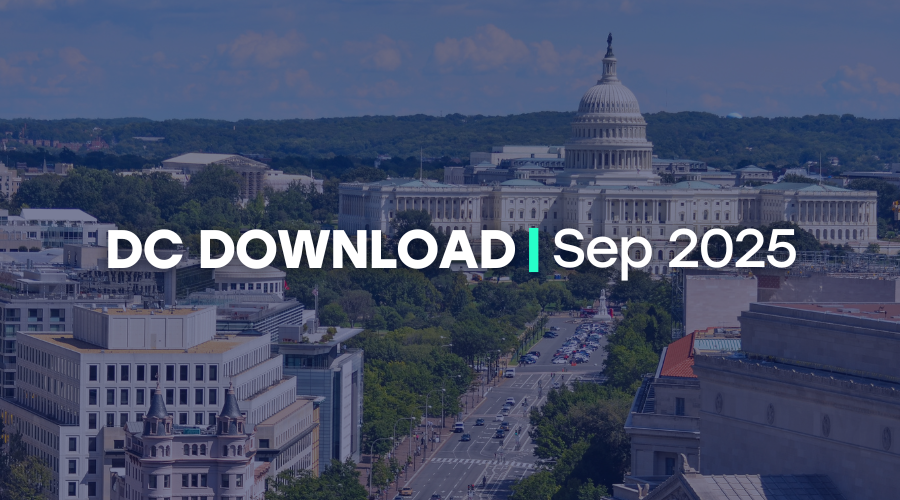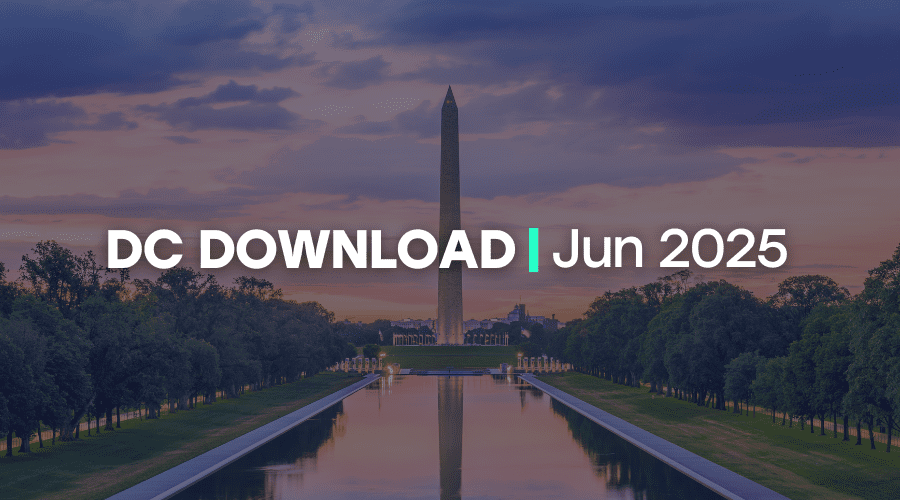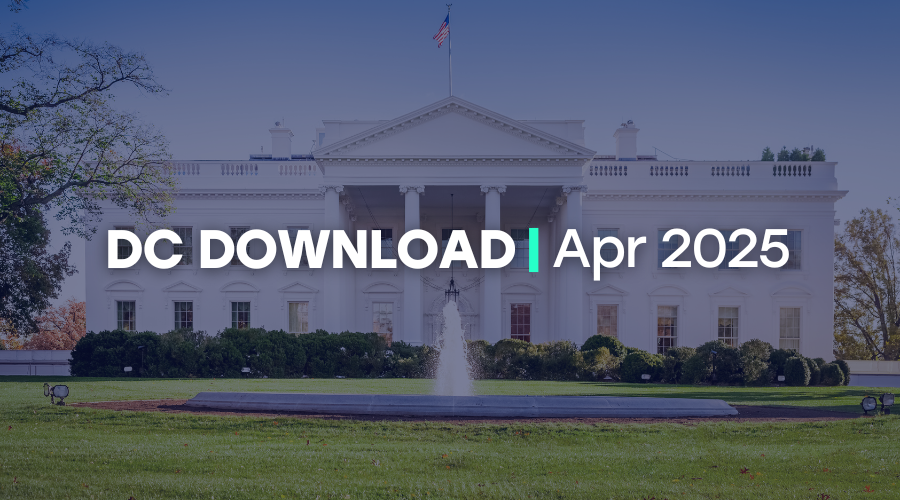August always has a way of pressing pause. Congress steps out for recess, the pace of daily life slows, and even the charitable sector takes a breath as communities soak up the final days of summer. But September flips the switch. Lawmakers are back in Washington, kids are back in classrooms, and the charitable sector is back at full speed responding to community needs that never took a vacation. Just like the school year, the fall on Capitol Hill begins with fresh energy, new priorities, and plenty of challenges — and the charitable sector has a critical role in shaping what comes next.
Shutdown Watch: Where Things Stand on FY26 Appropriations
Congress is back from August recess, and all eyes in Washington are on the September 30 deadline to keep the government funded. Each fiscal year, lawmakers are tasked with passing appropriations bills to set federal spending levels. With less than three weeks to go, the stakes are high: if Congress doesn’t act in time, the government will enter a shutdown, halting many federal operations and creating ripple effects across the economy.
Shutdowns are historically less likely when one party controls both chambers of Congress and the White House. However, slim majorities in the House could make it difficult for leadership to corral the votes needed for final passage. This narrow margin gives a small group of members significant influence over the process and has heightened the sense of uncertainty this year. Even with unified government, intraparty divisions are proving just as challenging as the partisan divides that usually dominate these debates.
On September 15, Congress revealed a short-term continuing resolution (CR) to keep the government funded through November 20, 2025. The House hopes to put the CR on the floor this week, but that doesn’t leave much time for the Senate to act before the Rosh Hashanah holiday recess. This schedule gives lawmakers only a handful of days for the House and Senate to finalize and pass a deal ahead of the September 30 deadline to avert a shutdown. While a CR is not a long-term solution, it remains the most likely outcome to keep the government open while negotiations on the full FY26 appropriations bills continue into the fall.
Protecting Nonprofit Workers: Our Response to Proposed PSLF Rule
The Department of Education recently proposed a significant change to the Public Service Loan Forgiveness (PSLF) program that could reshape how nonprofit employers are treated under the law. The proposal would give the Department authority to exclude nonprofit organizations from PSLF eligibility if they are deemed to have a “substantial illegal purpose”— examples include discrimination, fraud, or other violations. If implemented, this would mean that entire organizations could lose PSLF eligibility for up to 10 years, and every employee — regardless of their own conduct — would stop earning credit toward loan forgiveness.
This proposed rule, which seeks to implement an executive order signed by the President on March 7, 2025, is deeply concerning for nonprofits and their employees. PSLF has long been a crucial workforce tool, allowing mission-driven professionals to accept lower salaries in exchange for meaningful work, with the assurance that their service will count toward student loan forgiveness. Undermining employer eligibility introduces uncertainty into hiring and retention, risks destabilizing the nonprofit workforce, and ultimately harms the communities that rely on nonprofit services. PSLF was established in 2007 with broad bipartisan support, and the law is clear that 501(c)(3) nonprofits are all qualifying employers. Furthermore, there is already an established process within the IRS to revoke 501(c)(3) status if an organization is engaged in illegal activity — making this new Department process duplicative and unnecessary.
Independent Sector submitted detailed comments opposing the rule and helped member organizations submit their own feedback ahead of the September 17 deadline. We believe it is essential to preserve the clarity Congress intended when it tied PSLF eligibility to 501(c)(3) status. As this rule moves forward, we will continue working with partners to ensure PSLF remains a reliable pathway for nonprofit employees and a strong pipeline for the sector.
A Win for Charities: CFC to Continue in 2025
The Office of Personnel Management (OPM) recently floated proposals that put the Combined Federal Campaign (CFC) at risk. Established in 1961 by President John F. Kennedy, the CFC is the federal government’s workplace giving program, enabling federal employees and retirees to support thousands of nonprofits through payroll deductions or one-time gifts. Over the decades, it has become one of the largest and most reliable sources of charitable funding in the nation. That’s why the news that OPM had paused campaign preparations — citing administrative costs and declining participation — was so alarming. Independent Sector joined nearly 400 charities in signing a letter urging OPM to continue the campaign and reject changes that would jeopardize this essential program.
That advocacy worked; OPM has now confirmed that the 2025 CFC will move forward as planned, with federal employees able to contribute between October 1 and December 31. This is no small victory: Last year, the CFC generated roughly $70 million for more than 4,000 nonprofits nationwide. By speaking with one voice, the charitable sector made clear that dismantling or weakening the program would not only reduce vital resources but also undercut the tradition of service and generosity that the CFC represents.
Still, this fight isn’t over. OPM has left the door open to future changes, signaling that the program’s long-term future remains uncertain. That means continued vigilance and advocacy are essential to ensure federal employees can keep giving through a program that has fueled nonprofit missions for more than sixty years. We’ll keep standing with the sector to defend the CFC and to push for solutions that strengthen — not shrink — this critical source of charitable support.
Join Us in Atlanta for Independent Sector’s National Summit 2025
Independent Sector’s National Summit 2025 is just around the corner — happening October 27–29 in Atlanta! As our sector continues to rise to meet urgent and unique challenges, this is the moment to come together.
Don’t miss the opportunity to connect with leaders and professionals from across the charitable sector to align on solutions, elevate our collective voice, and drive lasting change. Together, we can help shape the future of the sector.
We look forward to seeing you in Atlanta!
Travis Swanson is the Government Relations Manager at Independent Sector



